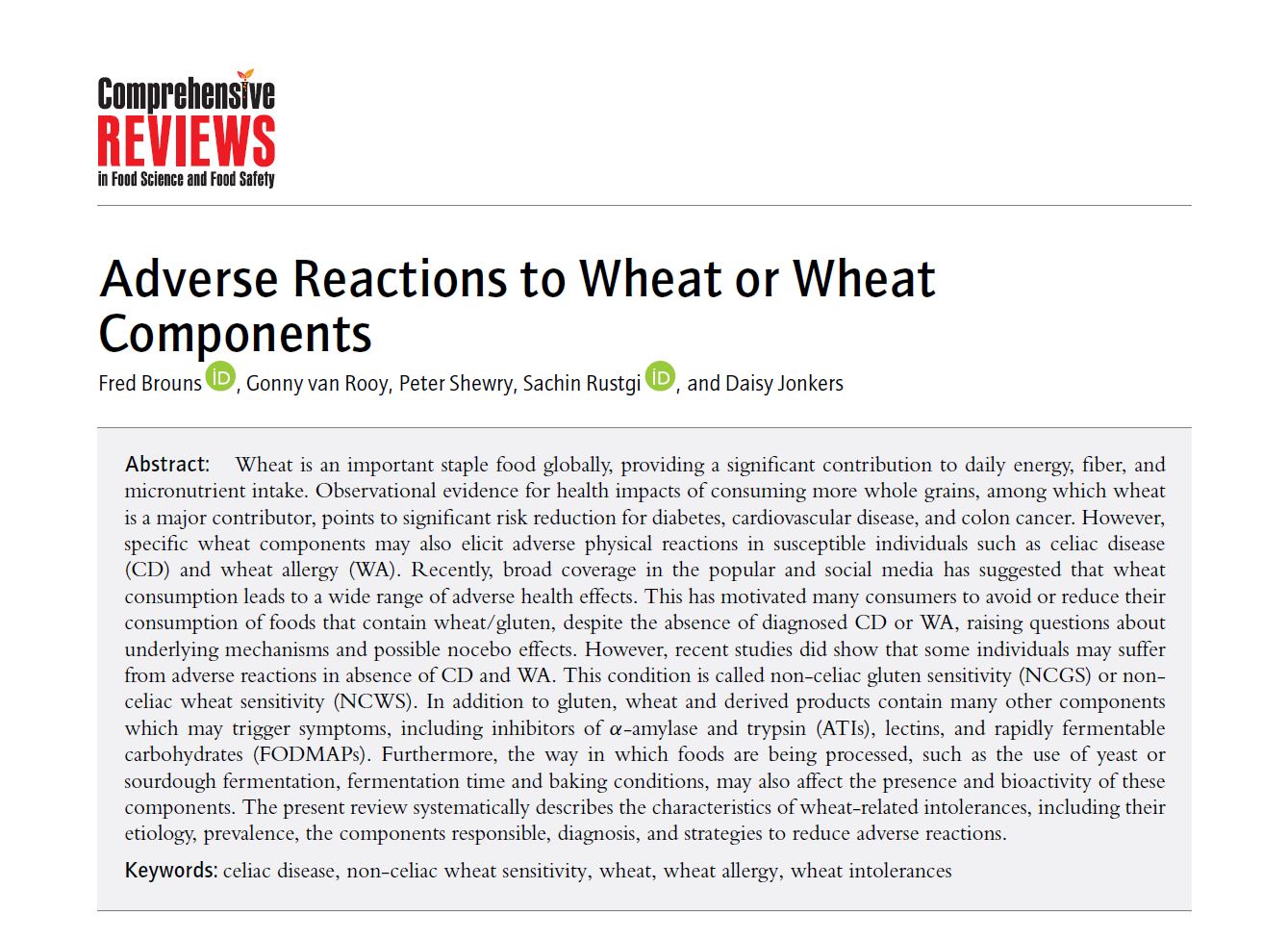Wheat is an important staple food globally, providing a significant contribution to daily energy, fiber, and micronutrient intake. Observational evidence for health impacts of consuming more whole grains, among which wheat is a major contributor, points to significant risk reduction for diabetes, cardiovascular disease, and colon cancer. However, specific wheat components may also elicit adverse physical reactions in susceptible individuals such as celiac disease (CD) and wheat allergy (WA). Recently, broad coverage in the popular and social media has suggested that wheat consumption leads to a wide range of adverse health effects. This has motivated many consumers to avoid or reduce their consumption of foods that contain wheat/gluten, despite the absence of diagnosed CD or WA, raising questions about underlying mechanisms and possible nocebo effects.
Read the full article by the ICC Fellows Fred Brouns, Peter Shewry et al - DOWNLOAD HERE


